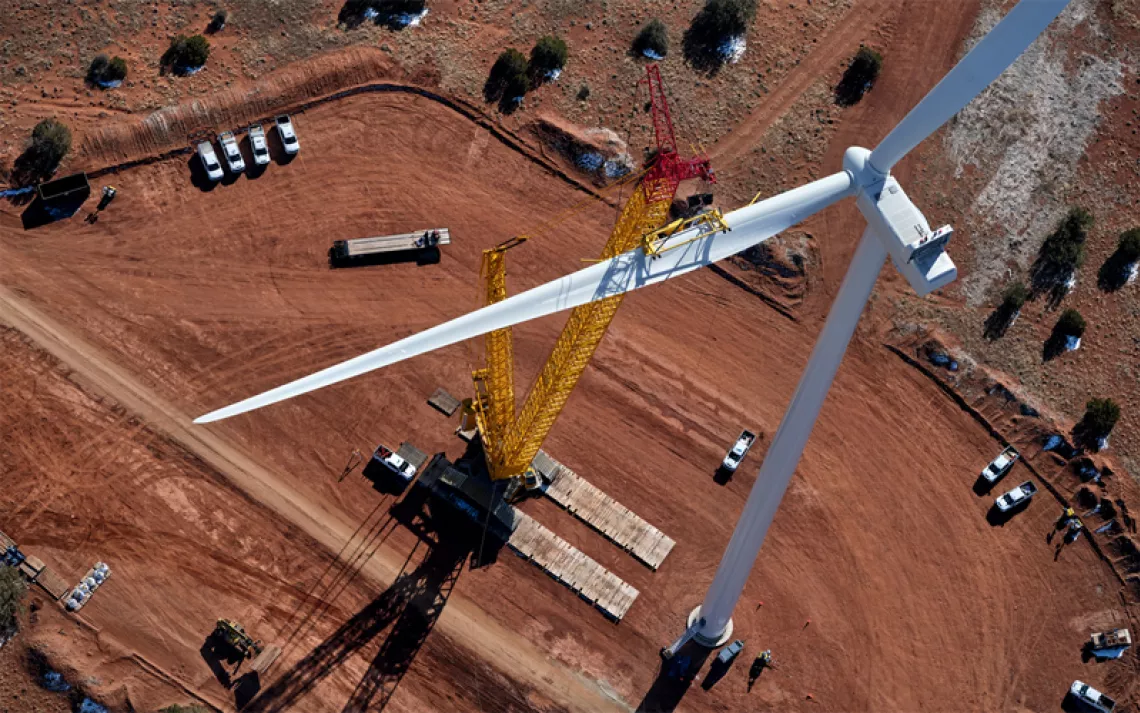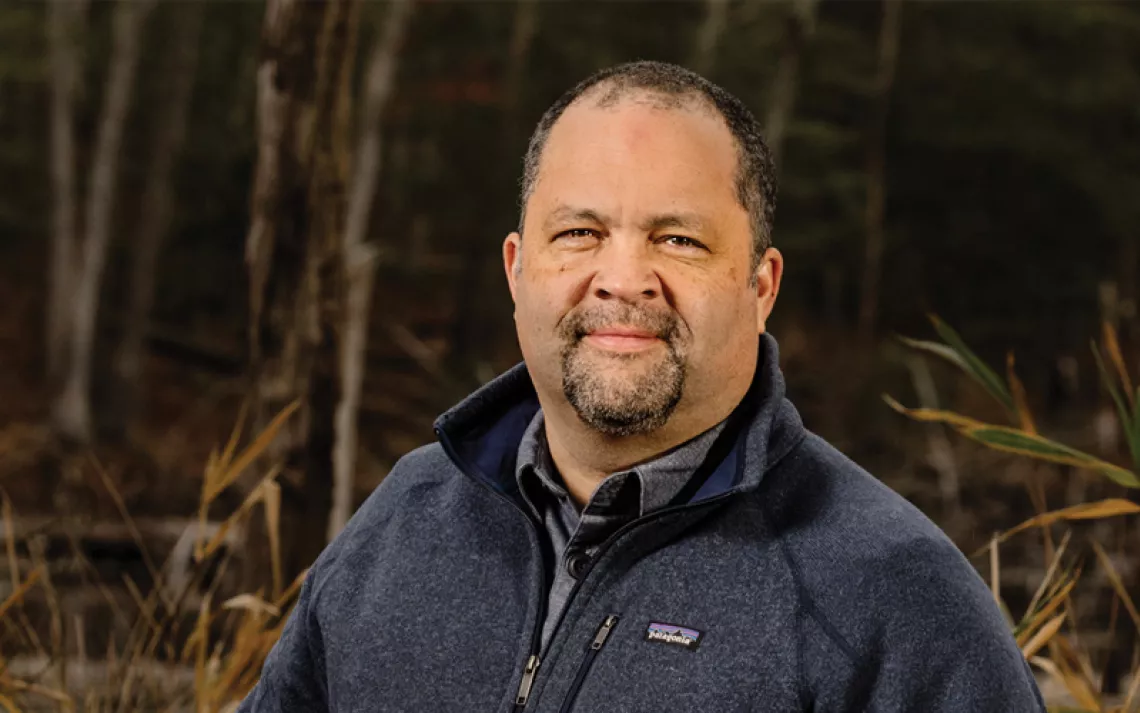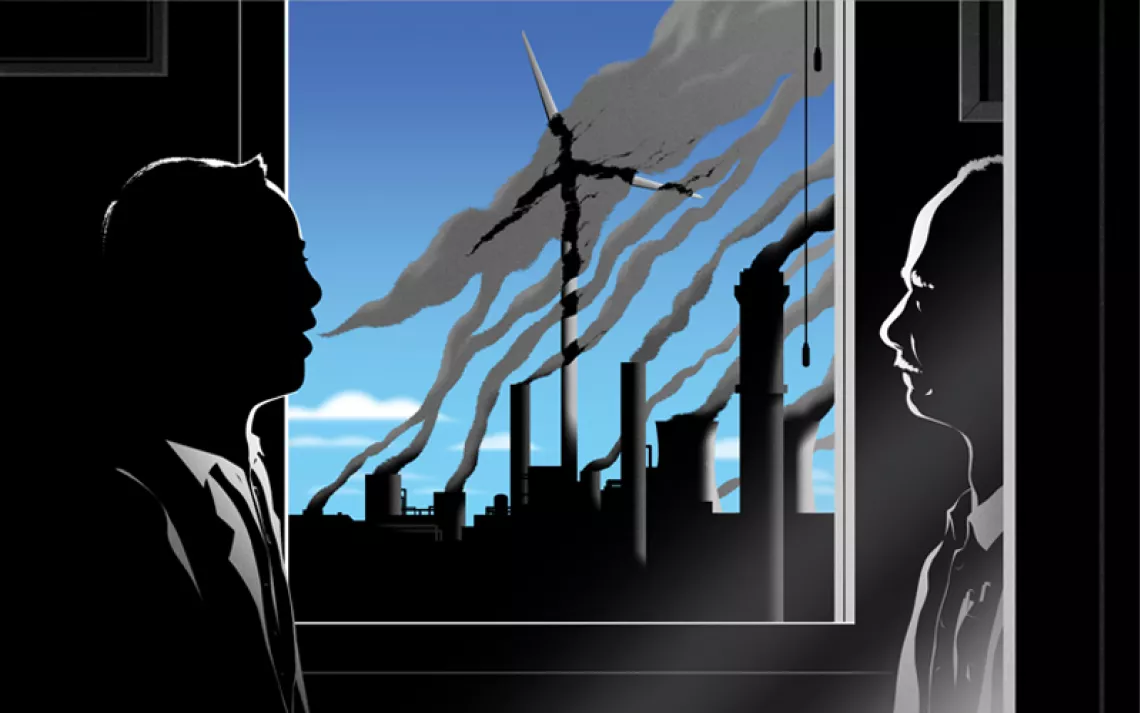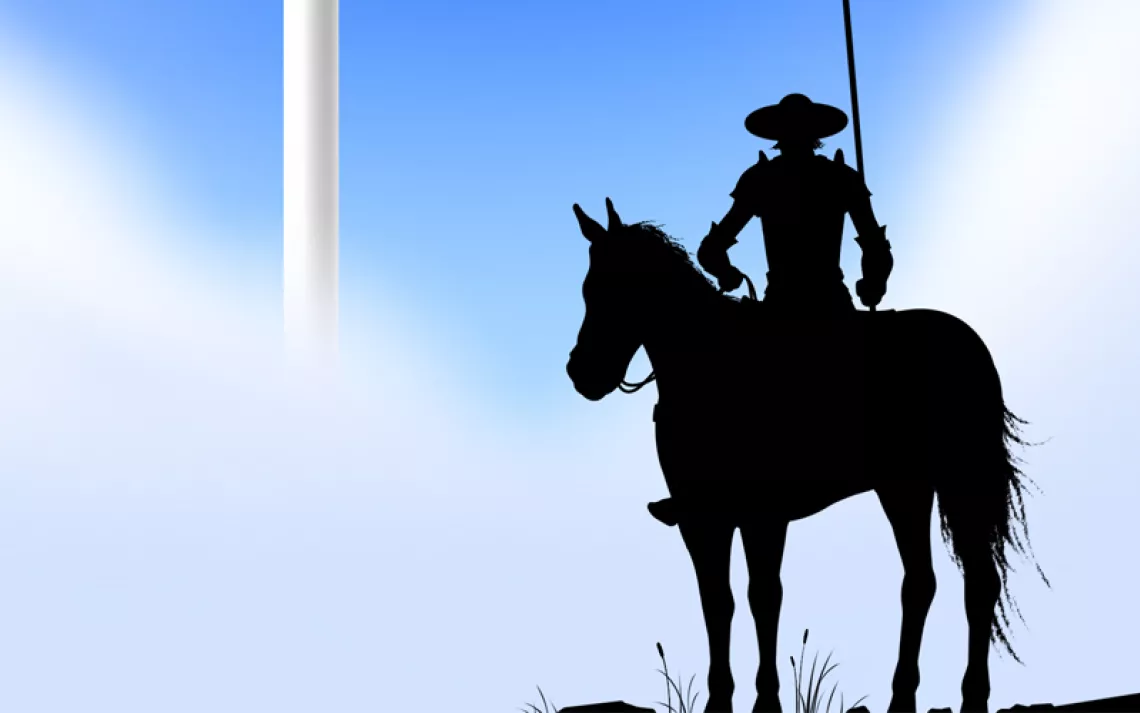Blade Runner
Lester Johnson, wind power team leader, is one of the faces of clean energy

LESTER JOHNSON, Team Leader, LM Wind Power, Little Rock, Arkansas | Photo by Jacob Slaton
Every day, the clean energy revolution is creating new jobs for American workers. As part of an ongoing series, Sierra asked one of them to tell us his story.
Little Rock is home. I was born and raised here. After high school, I got a job at a folding-carton manufacturer as a machine operator. A few years ago, I heard about a job fair, and a friend told me to look up T. Boone Pickens, the wind guy. I searched for Pickens and learned about the Wind Turbine Cowboys--these guys who go into the wind farm fields and repair blades. There were 400 or 500 people at the job fair, and I thought there was no way I would get it, but I wore a suit, knew about wind, and got my job. I started in 2008 on the closing line, where we glue the two sides of the blade together.
Each blade is handmade. Two halves make up a blade, and there is a mesh web in the middle. It's not easy gluing these together. I holler, "Glue!" and we have exactly 30 minutes to finish it because the glue gets hard quickly. Everyone has to be on point. It looks like ballet; everyone knows where to go. We have a system of checks and balances. If a problem happens, we can pinpoint it to the operator, the supplier, or even the temperature in the building.
It takes one day to make a blade. You work six days, you get six blades. The biggest turbine can supply energy to 500 homes. We go around the clock. Every 12 hours another shift comes in and picks up where the other left off. There's a big demand for these blades around the world. We are installing a new system that could allow for nine blades a week.
After my third year, I applied for team lead. I knew I could do it. Every morning we come in and do an exercise. I tell my team, "Give yourself a hug." They may have stuff that goes on outside of work, and this way they can shake it off. I also tell them, "Time is money; money is time." If we don't close that blade right, we'll all be on the unemployment line.
We have the five s's: sort, sustain, standardize, shine, and set. Each of these things we do on a daily basis. We have new people who come in, and their expectations aren't as high as ours. Some of them are no longer with us because of this.
One of the high points of working at LM is to see someone who has worked on the floor with you become a plant supervisor. I stress to my guys that it's nice to be in a company that's growing. Everyone has an opportunity to grow. Everyone can come up together.
My background in karate has helped me to be a team leader. In class, we had to squat down next to the wall, but we couldn't touch the wall. If you touched the wall, the instructor would slap you on the hand. When he hit you, you were supposed to say, "Thank you." He was helping me, but I didn't understand how. He was teaching me discipline.
My wife and I have four children. One son is in the Navy; one daughter is 19 and just moved out. We have a 14-year-old and an 11-year-old. My wife is a breast cancer survivor and so is my mother-in-law. We've had a firsthand experience with cancer, and I'm a big believer now in making sure women have mammograms. I have a brother and a sister. I'm the middle child. We are all close and have always had big family gatherings.
LM understands families. They held an open house for our families, with pizza and prizes, and they got to go through the plant and see what we do. We spend a lot of time here, and it's our second family. It's good that the two could meet each other.
When LM first came to Little Rock, the governor came, took pictures, and got behind it. But people don't always understand what I do. They see these things on trucks traveling up the interstate, but they don't know they're wind blades. People say, "Oh, you make those airplane wings?"
I think anything you do with the environment, it's a plus. It's not like we have another Earth. Every time a blade is built, it saves the environment. We are setting our children up for success or failure depending on what we do now. From plastic bags to gas in our cars, we have to take care of our air and water. It's all that we have.
This article was funded by the Sierra Club's Beyond Coal campaign.
 The Magazine of The Sierra Club
The Magazine of The Sierra Club



